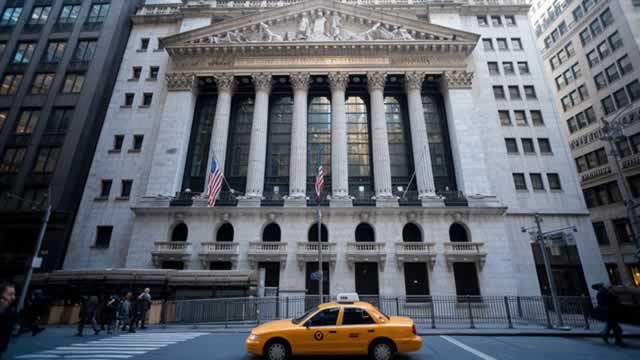The Recent Trend in Dollar Depreciation and Interest Rates: Implications for U.S. Financial Markets
In recent months, the value of the U.S. dollar has been declining, while interest rates have surged. This trend has raised concerns among financial analysts and experts, as it may indicate a reduction in foreign investment in American financial assets.
Impact on U.S. Financial Markets
Foreigners are significant buyers of U.S. treasury debt, corporate debt, and stocks. Their reduced buying can lead to a destabilization of markets and potentially trigger a crisis. Treasuries, considered a safe haven asset, are particularly vulnerable to foreign selling. A decrease in demand for Treasuries can lead to an increase in yields, making borrowing costs more expensive for the U.S. government. This, in turn, can negatively impact the U.S. economy.
Effects on Individual Investors
Individual investors may also feel the ripple effects of this trend. For those with significant holdings in U.S. stocks or bonds, a decrease in demand from foreign investors could lead to a decline in asset values. This decline could result in lower returns on investments and potential losses.
Global Implications
The reduction in foreign investment in U.S. financial assets can have far-reaching consequences beyond the U.S. border. The U.S. dollar is the world’s primary reserve currency, and the U.S. Treasury market serves as a benchmark for global interest rates. A decline in demand for U.S. Treasuries could lead to a decrease in demand for the U.S. dollar, potentially leading to a weaker global economy.
Additional Considerations
- A stronger euro or Chinese yuan could make U.S. exports less competitive, potentially leading to a decline in exports and a negative impact on the U.S. economy.
- The U.S. Federal Reserve may respond to the trend by raising interest rates further, making borrowing more expensive and potentially slowing economic growth.
- A crisis in U.S. financial markets could lead to a global financial contagion, with potentially severe consequences for the global economy.
Conclusion
The recent trend of a declining dollar and surging interest rates suggests that foreigners may be reducing their investments in American financial assets. This reduction in demand can lead to market instability and potentially trigger a crisis. Individual investors and the global economy could feel the ripple effects of this trend, with potential consequences including a decline in asset values, a weaker U.S. dollar, and a potential global financial contagion.
It is important for investors to stay informed about global economic trends and to consider diversifying their portfolios to mitigate potential risks. Additionally, policymakers and central banks may need to take action to stabilize markets and prevent a potential crisis.




